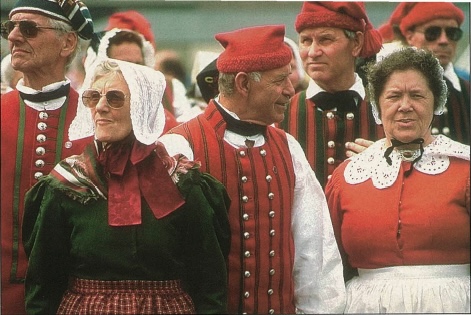EUROPEAN UNION (EU) COMMISSIONERS have announced that agreement has finally been reached to adopt English as the preferred language for European communications, rather than German, the other possibility. As part of the final negotiations, however, Her Majesty’s Government conceded that English spelling had some room for improvement and has accepted a five-year phased plan for what will be known as “EuroEnglish”–or Euro for short.
In the first year, “s” will be used instead of the soft “c.” Sertainly, sivil servants will resieve this news with joy. Also, the hard “c” will be replaced with “k.” Not only will this klear up konfusion, but typewriters kan have one less key. There will be growing publik enthusiasm in the sekond year, when the troublesome “ph” will be replaced by “f.” This will make words like fotograf 20 per sent shorter.
In the third year, publik akseptanse of the new spelling kan be expekted to reach the stage where more komplikated changes are possible. Government will enkorage the removal of double letters, which have always ben a deterent to akurate speling. Also, al wil agre the horible mes of silent “e”s in the languaj is disgrasful, and they would go. By the forth yer, peopl wil be reseptiv to aditional steps such as replasing “th” by “z” and “w” by v.
During ze fifz yer, ze unesesary “o” kan be dropd from vords kontaining “ou,” and similar changes vud of kors be aplid to ozer kombinations of leters. After zis fifz yer, ve vil hav a reli sensibl riten styl. Zer vil be no mor trubls or difikultis and evrivun vil find it ezi tu understand ech ozer. Ze drem vil finali kum tru.
This whole proposal may sound preposterous to you, and, of course, it is–all a joke played upon you, our loyal readers. There is no such proposal to reform the speling–er, spelling–of English. However, it did seem a good way to introduce Hinduism Today’s first-ever special cartoon section on the following seven pages, which showcases our cartoonists and celebrates the lighter side of Hinduism. So, to the komikaly-khalenged, we say, “Liten up and laf along vit us.” Auf Wiedersehen.
